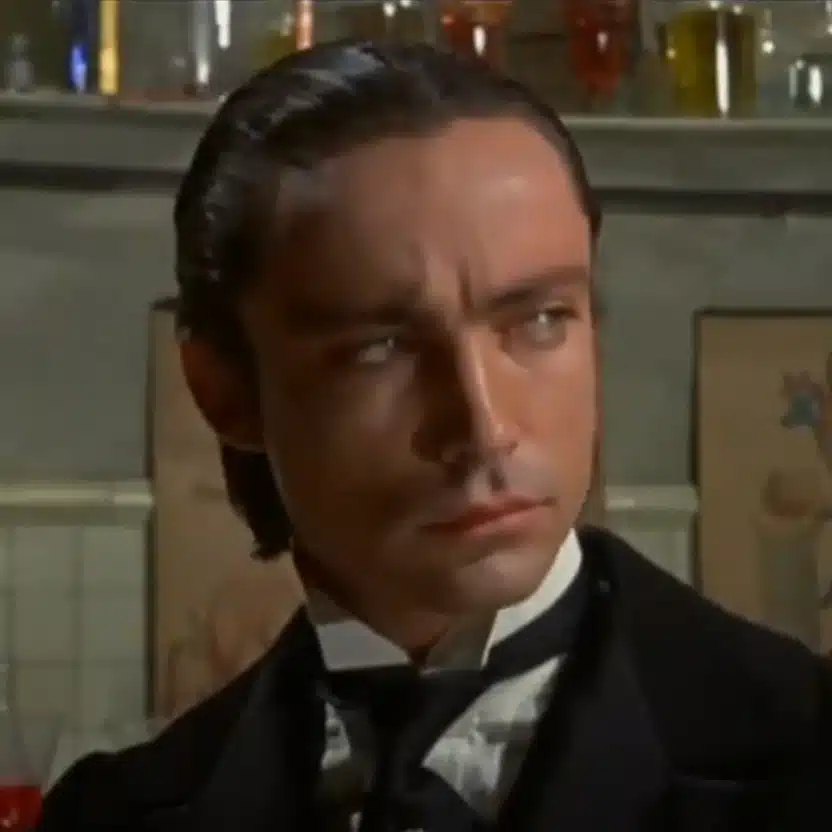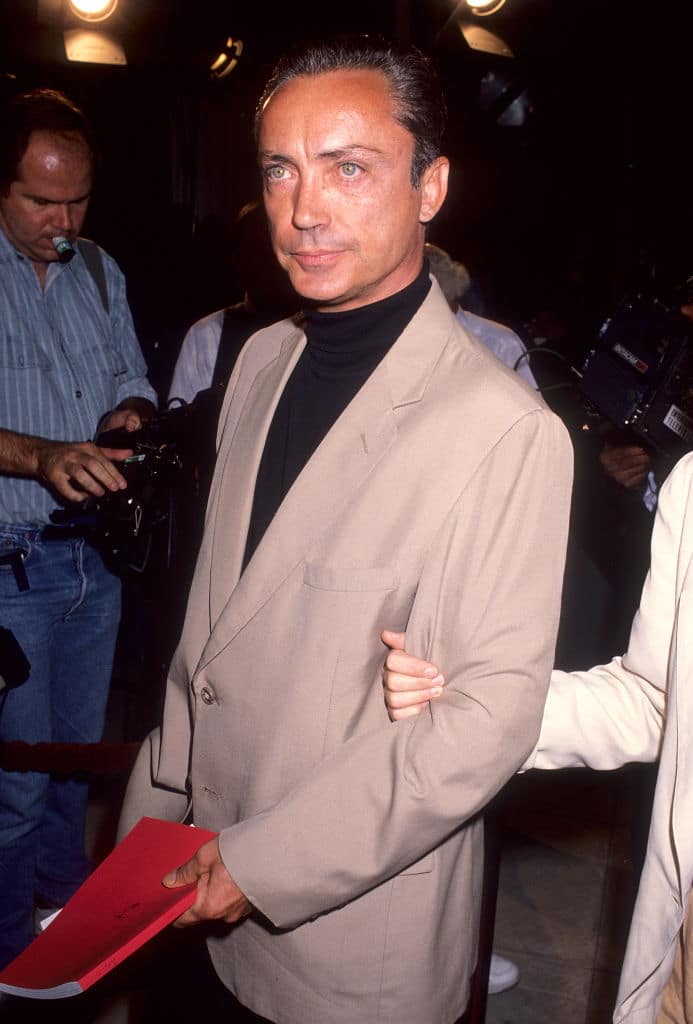He entered the world under the worst circumstances imaginable — born in a hospital that was bombed only hours later — yet from that violent beginning came an artist who would spend the next five decades captivating audiences as one of cinema’s most unforgettable villains.
Udo Kier, the German actor famous for his icy blue stare and his mastery of playing monsters, madmen, and misfits, has passed away at 81.
Kier died on Sunday in a Palm Springs hospital, his partner Delbert McBride confirmed. No cause of death was given.
He was born Udo Kierspe in Cologne in 1944, and the story of his birth was as dramatic as any role he later played. The hospital was bombed shortly after he came into the world, and rescuers pulled him and his mother from the rubble. Life didn’t get easier after that.
“My father was already married with three children when I was born, and my mother didn’t know,” he told The Guardian. “We grew up poor. We had no hot water until I was 17.”
Those early hardships shaped him, but so did the escape he found in imagination and performance. He eventually moved to London to study English and was discovered quite literally by chance — an encounter in a café that started his acting career.
In a 2024 interview he admitted, “I liked the attention, so I became an actor.”
His breakout role came in the 1970 splatter-horror classic Mark of the Devil. Audiences quickly learned that Kier had a rare gift: he could make evil look elegant, magnetic, even strangely sympathetic. From vampires to corrupt generals to Nazi officers, his villains were never forgettable.
Fate played a large role in his career. He happened to sit next to director Paul Morrissey on a flight — a coincidence that landed him in the Andy Warhol–produced cult films Flesh for Frankenstein and Blood for Dracula.
He might have become a mainstream heartthrob; he certainly had the looks for it in the ’70s. But Kier drifted toward the eccentric and the artistic, working with major European auteurs who understood his unique presence. He appeared in Rainer Werner Fassbinder’s Lola, Lili Marleen, The Stationmaster’s Wife, and The Third Generation, as well as in several of Lars von Trier’s most acclaimed films, including Breaking the Waves, Dancer in the Dark, Dogville, Melancholia, and Nymphomaniac. Von Trier trusted him so deeply he made Kier godfather to his child.
Hollywood also embraced him. His credits spanned from My Own Private Idaho — which led to collaborations with Madonna — to Ace Ventura: Pet Detective, Johnny Mnemonic, Armageddon, End of Days, and Blade. Later, he appeared in Brawl in Cell Block 99, Dragged Across Concrete, and the 2022 indie gem Swan Song, where he delivered one of his most tender, surprising performances as a retired hairdresser on a bittersweet final journey.
Gamers knew his voice well, too. His portrayal of Yuri in Command & Conquer: Red Alert 2 remains iconic, as does his work in Call of Duty: WWII.
Kier once said, “If you play small or guest roles, it’s better to be evil and scare people than to be the guy who works in the post office and goes home to his wife and children. Audiences will remember you more.”
And they did.
He moved to Palm Springs in 1991, settling into a converted mid-century library where he surrounded himself with art and architecture. He once joked that if he hadn’t become an actor, he would’ve happily become a gardener. He loved beauty in all its forms — onscreen and off.
Throughout his life he was openly gay, and he often said that it never once interfered with his career:
“No one cared about my sexuality. They only cared about the character I played and whether I did it well.”
In the end, Kier was a performer who never stopped working, never stopped reinventing himself, and never stopped surprising audiences. He viewed his immense body of work with good humor, once summing it up this way:
“100 movies are bad, 50 movies you can watch with a glass of wine, and 50 movies are good.”
Udo Kier leaves behind an extraordinary legacy — a lifetime of unforgettable characters, a career built on bold choices, and a presence that could electrify a screen with nothing more than a look.
Rest in peace, Udo Kier. Your shadow, your intensity, and your unmistakable gaze will never fade.








